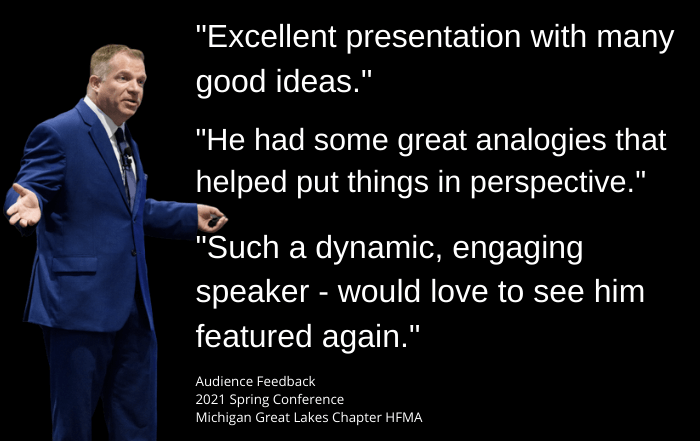 The ability to be present at work represents an important career skill. By present, I don’t just mean being physically in a place. Rather, you’re focused on your most important tasks, during important moments, and not overwhelmed by your oncoming storm of things you need to do.
The ability to be present at work represents an important career skill. By present, I don’t just mean being physically in a place. Rather, you’re focused on your most important tasks, during important moments, and not overwhelmed by your oncoming storm of things you need to do.
As a motivational keynote speaker, I always have a lot of tasks on my mind. This can include outreach, travel plans, marketing, as well as creating and practicing new material.
Sometimes, it’s okay to multitask. But if I’m talking with a client or giving a presentation, I need to be 100% focused on them. By being present at work, I make sure that everything else has to wait to earn my attention.
On your job, this level of focus can save you a lot of time and reduce stress. You’re not having to mentally muscle through busy days. Consider these tips to help you become more present at work:
Where are You?
A good way to break out of a busy mind, is to focus on a simple question. Ask yourself, “Where am I?”
This isn’t a trick question. For instance, you might simply say to yourself, “I’m sitting at my desk, in my office,” or “I’m in the waiting room of a prospective client’s office.”
Besides the location can you add some sort of sensory information? This could see you saying, “I’m sitting at my desk at work and I smell coffee.” Others may choose to focus on the room temperature.
The goal is to clear your mind for a minute. Then you can decide what should fill it.
Be Present at Work with Your Most Important Thing
Now think about what is your most important task you should be focused on in that moment. This is one thing, not ten.
And example of this could be to review an agenda and notes for an upcoming meeting. That’s where your focus will go. You don’t start it, stop for a while, and then try to pick up where you left off.
Some like to put a time limit on these tasks. You make a deal with yourself to spend ten minutes preparing for your upcoming meeting.
You’ll start to learn how long it takes you to do things, when you’re focused 100% on an activity. Later this can help you better schedule your day.
What’s Distracting You?
Does it seem like, as soon as you commit to doing something, something else comes along that distracts you? It’s not uncommon.
We’ve talked before about strategies for avoiding talkative coworkers. Sometimes this means creating a barrier, like closing a door, turning off phone and email notifications, or moving to a quieter space.
You may be your biggest source of distractions. While I’m sure you have a lot to think or worry about, don’t let the needs of the now become obscured by future fears.
Consider whether the distraction needs immediate attention or if it can wait. Sometimes we use other tasks, as a delay tactic, for important work we may not love.
Leave Space in Your Day
If you want to have mindful moments at work, then you need to free up some time for them. This can just be a minute here or a few minutes there. But if every moment of your day sees you rushing around, then you’ll never find those minutes.
You may want to set an alarm during the day, as a reminder to take these moments for yourself. Some may choose to do them at the beginning of the day, after lunch, or just as they’re staring their final hour at work.
Consider Meditation
My mind moves quickly and sometimes in order to focus on one task, I need to slow down my thinking. I’ve found mediation to be a useful practice.
I’m far from a guru but even a short guided meditation can significantly improve my mood and focus.
A quick search of YouTube for meditation can reveal many choices. Your cost of entry is only your investment of time.
Many of the meditations are guided by an instructor, feature some basic breathing exercises, followed by some visualization or relaxation techniques.
Some enjoy mediation as a way to unwind after a busy day at work.






